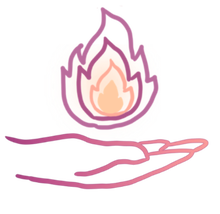|
This morning I received an email from The Atlantic about David Brooks' article on what's wrong with the Ivy League. The article itself, "How Ivy League Broke America: the meritocracy isn't working, we need something new", I have yet to read. But the email alone from the author sparked a new philosophical musing. Since the email is distinct from the first two article paragraphs non-subscribers can read for free at The Atlantic, I'm pasting the text of the email below as context for the blog article that follows. "Dear Reader,
The diploma divide is driving American politics. Donald Trump surged back into power with the support of millions of high-school-educated voters who are furious at the college-educated elite. But the diploma divide isn’t only a political divide. It’s a social divide. High-school-educated people die eight years younger than college-educated people, on average. They are much more likely to perish from opioid addiction, to have children out of wedlock, to be obese, to say they have no close friends. The academic-performance gap between kids who come from affluent families and those who come from less affluent families is greater than the academic gap between white and Black students in the age of Jim Crow. There is a chasm dividing American society, and it is defined primarily by education levels. For the past year, I’ve tried to understand this chasm—where it came from, and what can be done to close it. I learned that this chasm didn’t just happen. It was created. A group of well-meaning college administrators decided, in the middle of the 20th century, that they would segregate America by intelligence. They defined intelligence in a very specific and narrow way: the ability to perform well in academic settings and standardized testing. Students who had these skills were admitted into elite universities and then funneled into jobs at the commanding heights of society—in finance, law, government, and media, and atop large corporations. They married other people with these skills, invested massively in their children, who then went off to the same elite universities, and presto—you’ve got an inherited caste system. Is today’s leadership class governing well? No. Is today’s leadership class trusted and respected by a wide swath of Americans? No. Has today’s leadership class used the system to lock in its privileges? Yes. The meritocracy needs to be transformed from top to bottom. In my new cover story for The Atlantic, I describe what a more humane, just, and democratic meritocracy could look like. Regardless of how you feel about the outcome of the presidential election, the problem is not just Donald Trump. It’s the way we as a society sort people, putting some on the escalator to affluence and tossing others out. In my essay, I try to imagine a better world. If you would like to support stories like this—ones that not only examine how we got here but also envision where we could go next—I encourage you to subscribe to The Atlantic. Thank you. David Brooks Contributing Writer"
0 Comments
Leave a Reply. |
Author:Amanda I. Greene This is where I share thoughtful, and sometimes unpolished, musings in the form of philosophical explorations, inspirations, poems, and artwork.
Archives
March 2025
Categories
All
|


 RSS Feed
RSS Feed